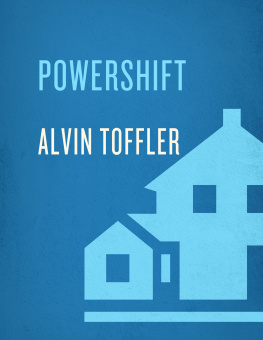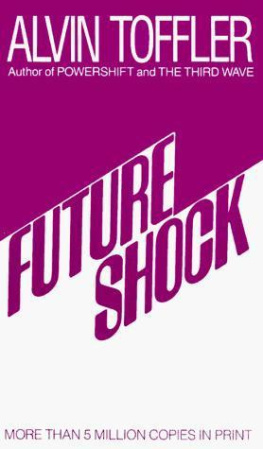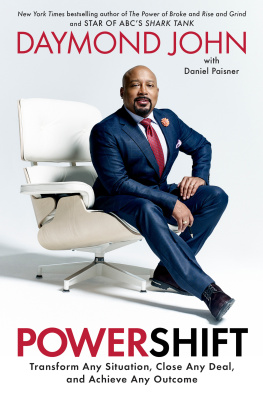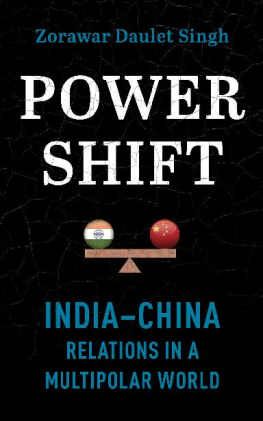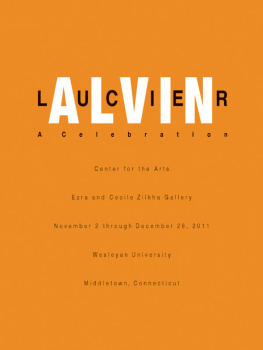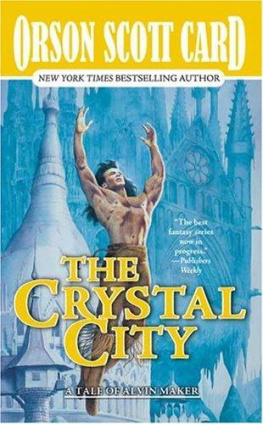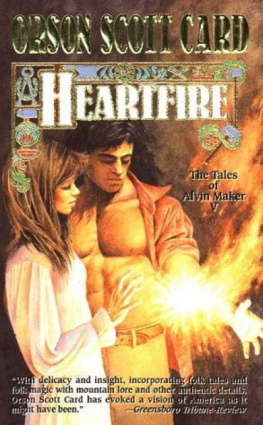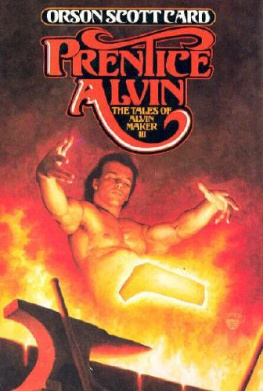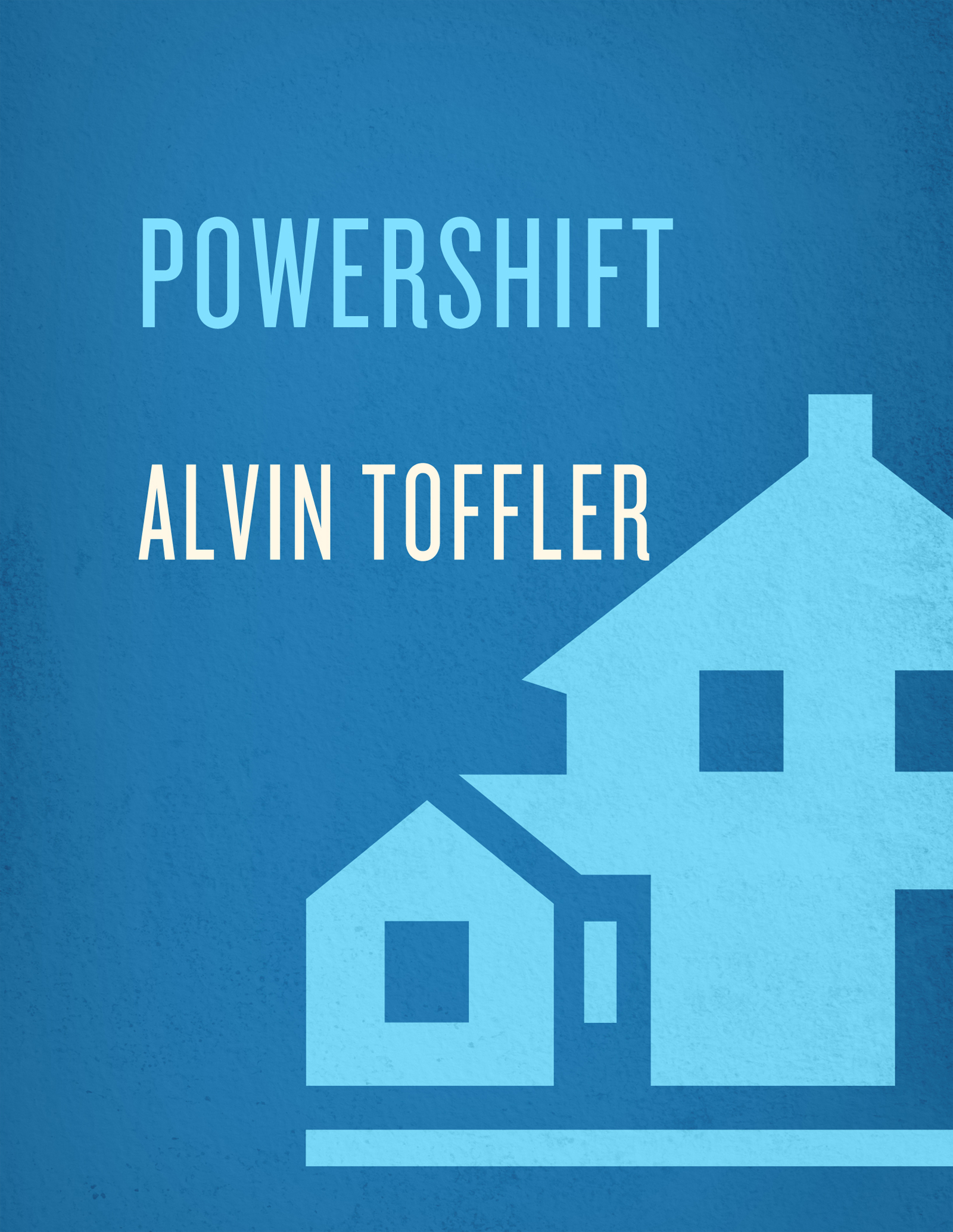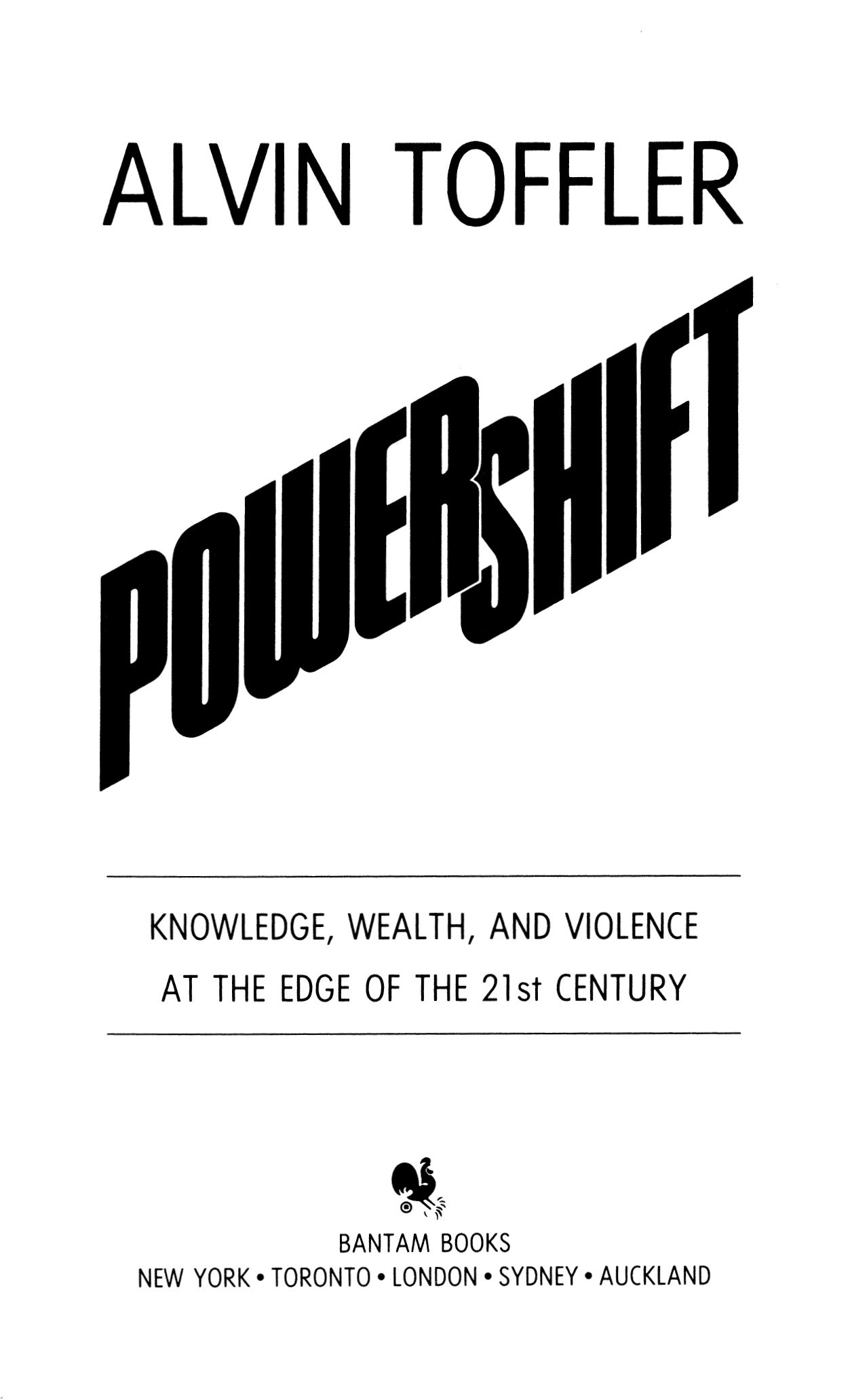A PERSONAL PREFACE
Powershift is the culmination of a twenty-five-year effort to make sense of the astonishing changes propelling us into the 21st century. It is the third and final volume of a trilogy that opened with Future Shock, continued with The Third Wave, and is now complete.
Each of these three books can be read by itself as an independent work. But together they form an intellectually consistent whole. Their central subject is changewhat happens to people when their entire society abruptly transforms itself into something new and unexpected. Powershift carries forward the earlier analysis and focuses on the rise of a new power system replacing that of the industrial past.
In describing todays accelerating changes, the media fire blips of unrelated information at us. Experts bury us under mountains of narrowly specialized monographs. Popular forecasters present lists of unrelated trends, without any model to show us their interconnections or the forces likely to reverse them. As a result, change itself comes to be seen as anarchic, even lunatic.
By contrast, this trilogy starts from the premise that todays high-speed changes are not as chaotic or random as we are conditioned to believe. It contends that there are not only distinct patterns behind the headlines, but identifiable forces that shape them. Once we understand these patterns and forces, it becomes possible to cope with them strategically, rather than haphazardly on a one-by-one basis.
However, to make sense of todays great changes, to think strategically, we need more than bits, blips, and lists. We need to see how different changes relate to one another. Thus Powershift, like its two predecessors, sets out a clear and comprehensive synthesisan overarching image of the new civilization now spreading across the planet.
It then zeros in on tomorrows flashpoints, the conflicts we face as the new civilization collides with the entrenched forces of the old. Powershift contends that the corporate takeovers and restructurings seen so far are only the first salvos in far larger, quite novel business battles to come. More important, it holds that the recent upheavals seen in Eastern Europe and the Soviet Union are mere skirmishes compared with the global power struggles that lie ahead. Nor has the rivalry among the United States, Europe, and Japan reached its full intensity.
In short, Powershift is about the crescendoing struggles for power that still face us as the industrial civilization loses world dominance and new forces arise to tower over the earth.
For me, Powershift is a high point reached after a fascinating journey. Before continuing, however, a personal note is required. For I did not make this journey alone. This entire trilogy, from inception to completion, has had an uncredited co-author. It is the combined work of two minds, not just one, although I have done the actual writing and have accepted the plaudits and criticisms for both of us.
My co-author, as many already know, is my best friend, spouse, and partner, my love for forty years: Heidi Toffler. Whatever the faults of this trilogy, they would have been far more serious without her skeptical intelligence, her intellectual insight, keen editorial sense, and general good judgment about ideas and people alike. She has contributed not merely to after-the-fact polishing but to the formulation of the underlying models on which the works are based.
While the intensity of her involvement varied from time to time, depending on her other commitments, these books required travel, research, interviews with hundreds of people around the world, careful organization, and drafting, followed by endless updating and revision, and Heidi took part at every stage.
Nevertheless, for reasons that were partly private, partly social, partly economicand that varied at different times over the past two decadesthe decision was made to credit only the actual writer.
Even now Heidi refuses to lend her name to a book jacket, out of integrity, modesty, and lovereasons that seem sufficient to her, though not to me. I can only redress this shortcoming with these personal, prefatory words: I feel that the trilogy is as much hers as mine.
All three books probe a single lifetimethe period beginning, say, in the mid-1950s and ending approximately seventy-five years later, in 2025. This span can be called the hinge of history, the period in which smokestack civilization, having dominated the earth for centuries, is finally replaced by another, far different one following a period of world-shaking power struggles.

